Tools Required
| • | J 8037 Piston
Ring Compressor |
Piston Selection
Important: The coating on the piston allows for an interference fit between the
cylinder and the bore. The piston diameter can NOT be measured accurately
because the piston coating is not a consistent thickness. Do NOT measure the
piston diameter.
To select the correct piston for installation, the cylinder bore must
be measured. If the cylinder bore diameter is within service specifications,
install the original piston/connecting rod assembly or a new, standard size
piston/connecting rod assembly. A used piston/connecting rod assembly may
be reinstalled if, after cleaning and inspection, the piston is not damaged.
If the cylinder bore is NOT within specifications, the cylinder must be resized
to accept a new, oversized piston.
For proper piston fit, the engine block cylinder bores should not have
excessive wear or taper.
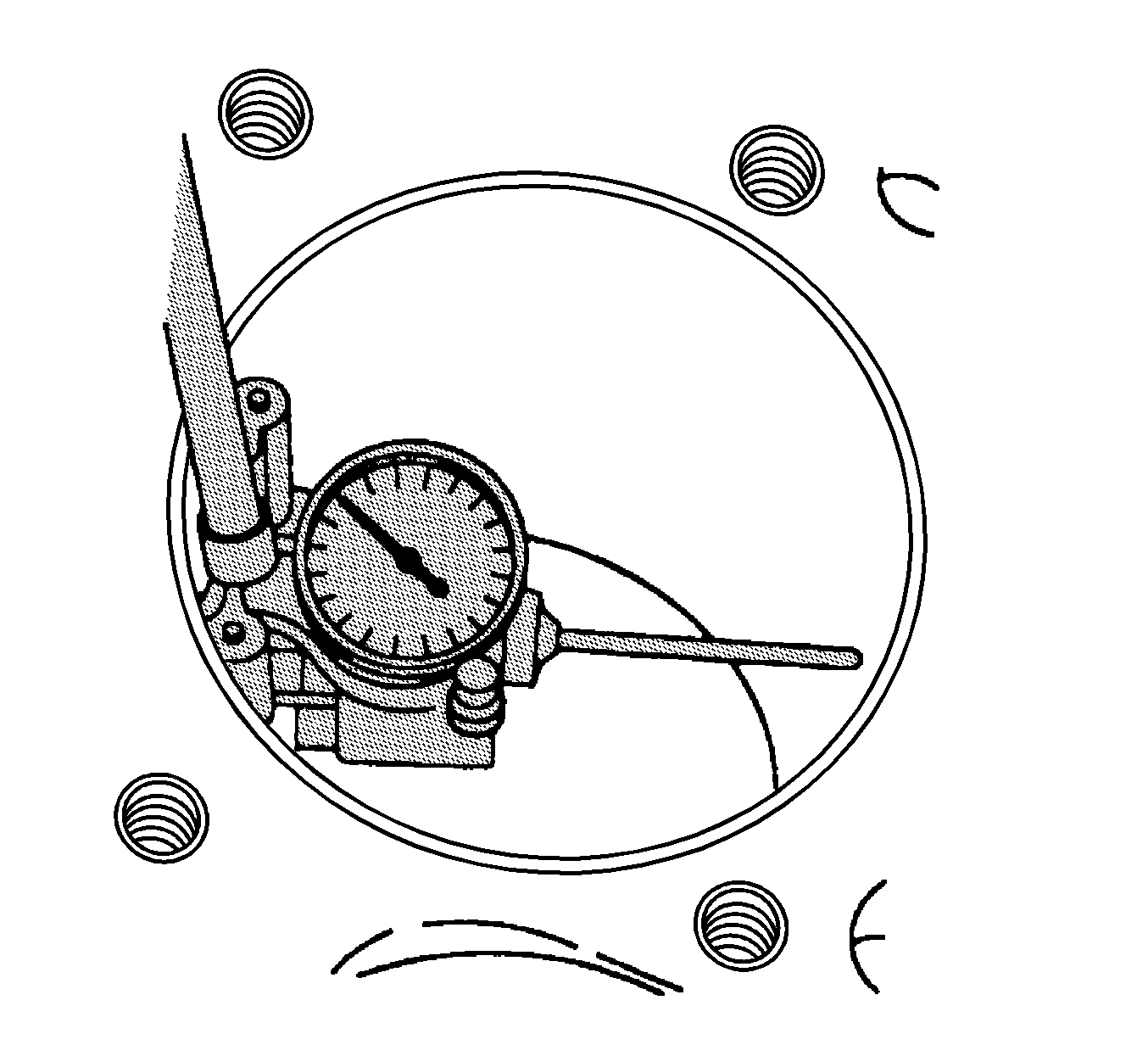
- Inspect the engine block
cylinder bore. Refer to
Engine Block Cleaning and Inspection
.
- Inspect the piston/connecting rod assembly for damage. Refer to
Piston, Connecting Rod, and Bearing Cleaning and Inspection
.
- Use the J 8087
and measure the cylinder bore diameter. Refer to
Engine Block Cleaning and Inspection
.
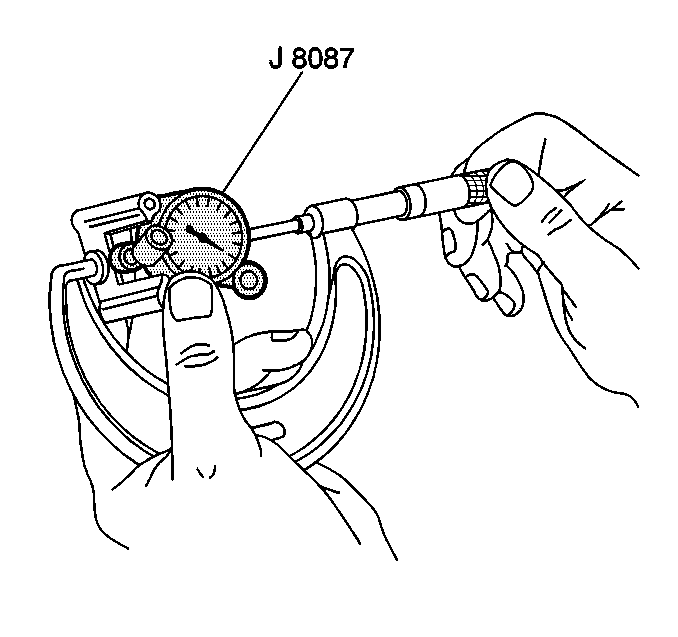
- Measure the J 8087
with a micrometer and record the reading.
- Compare the cylinder bore measurement to the specifications. Refer
to
Engine Mechanical Specifications
.
| 5.1. | If the cylinder bore is within specifications, select the original
piston or a new, original size piston. |
| 5.2. | If the cylinder bore is not within specifications, select the
next oversized piston/connecting rod assembly, then bore and hone the cylinder
bore to fit the oversize piston. |
Piston Installation
- Coat the following components with clean engine oil:
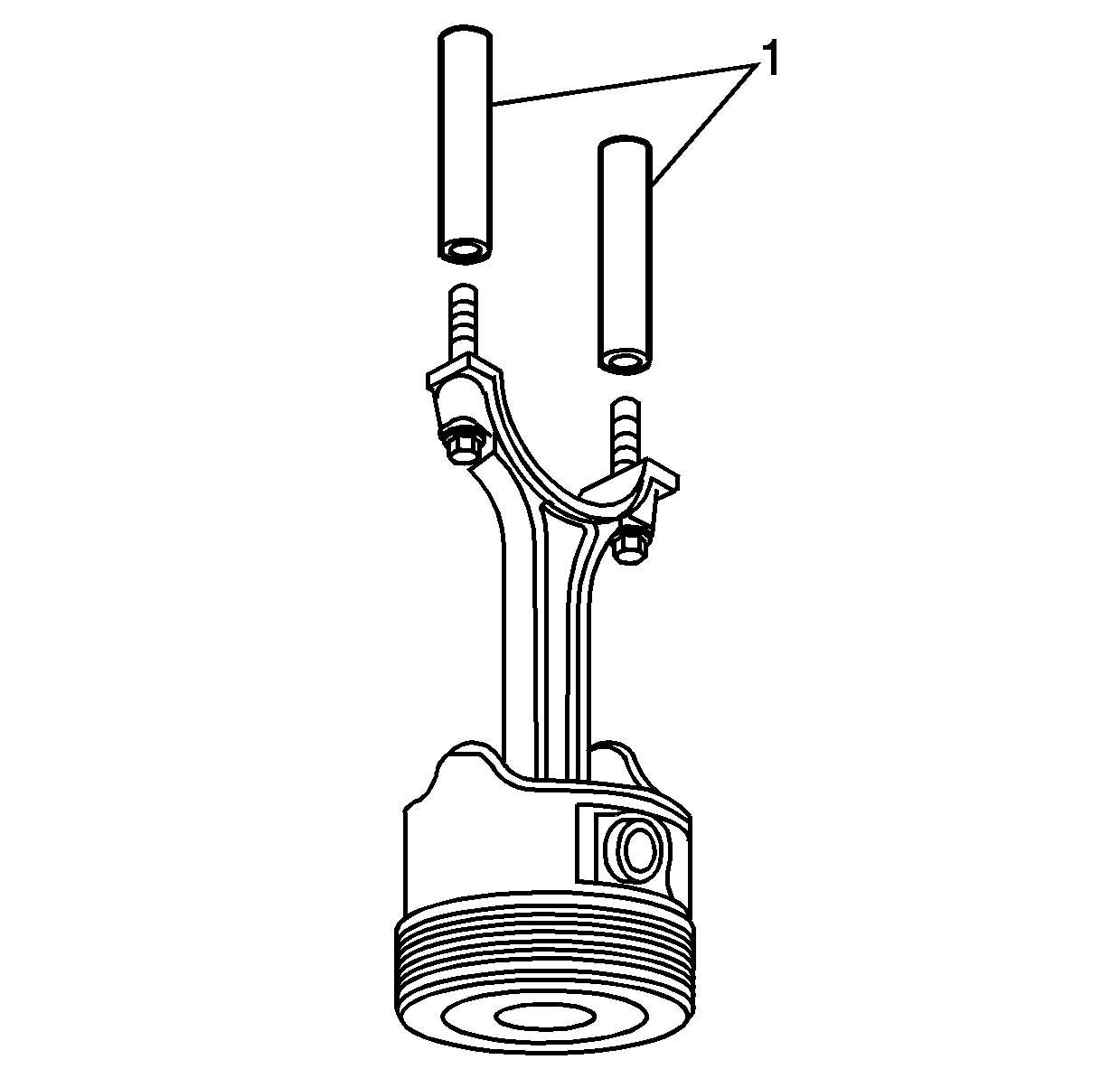
- Install rubber fuel line onto the connecting rod bolts.
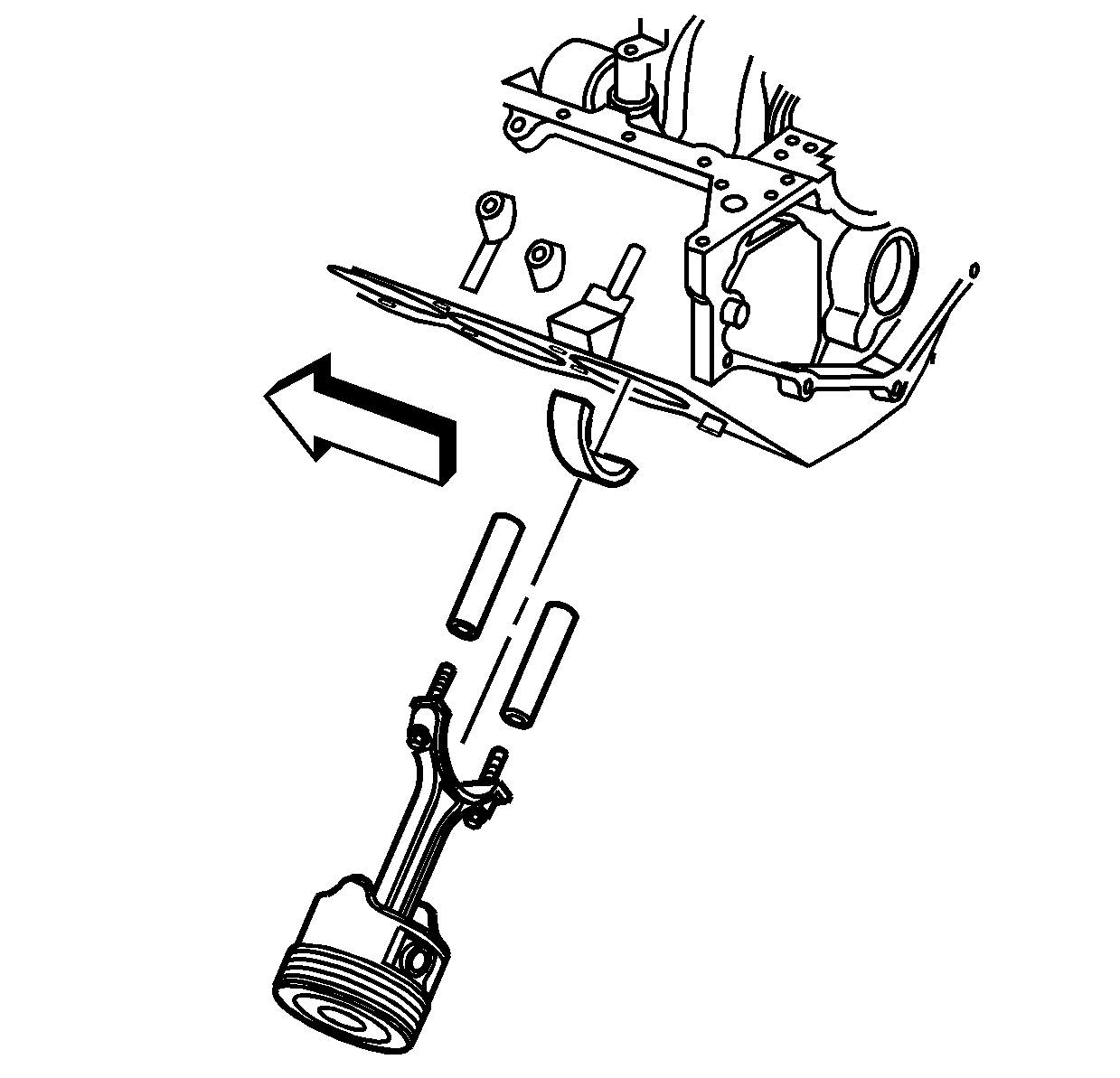
Important: The mark on the top of the piston must face the front of the engine
block. When assembled, the flanges on the connecting rod and cap should face
to the front of block on the left bank and to the rear of block on the right
bank.
- Install the piston, connecting rod and upper connecting rod bearing
through the top of the engine block.
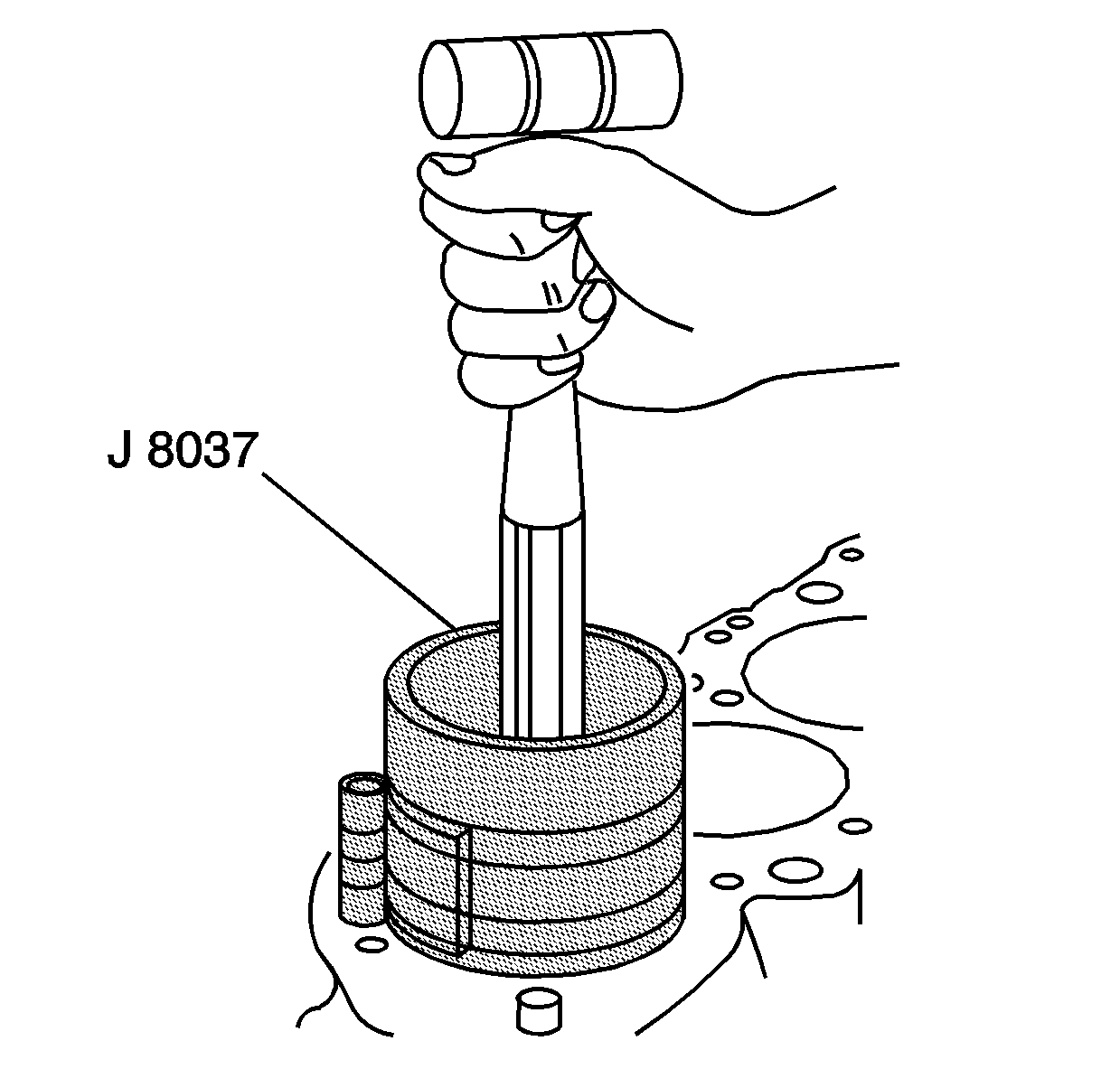
- Install the J 8037
onto the piston and compress the piston
rings.
- Use the J 8037
and lightly tap the top of the piston with a wooden hammer handle.
- Hold the J 8037
firmly against the engine block until all of the piston rings have entered
the cylinder bore.
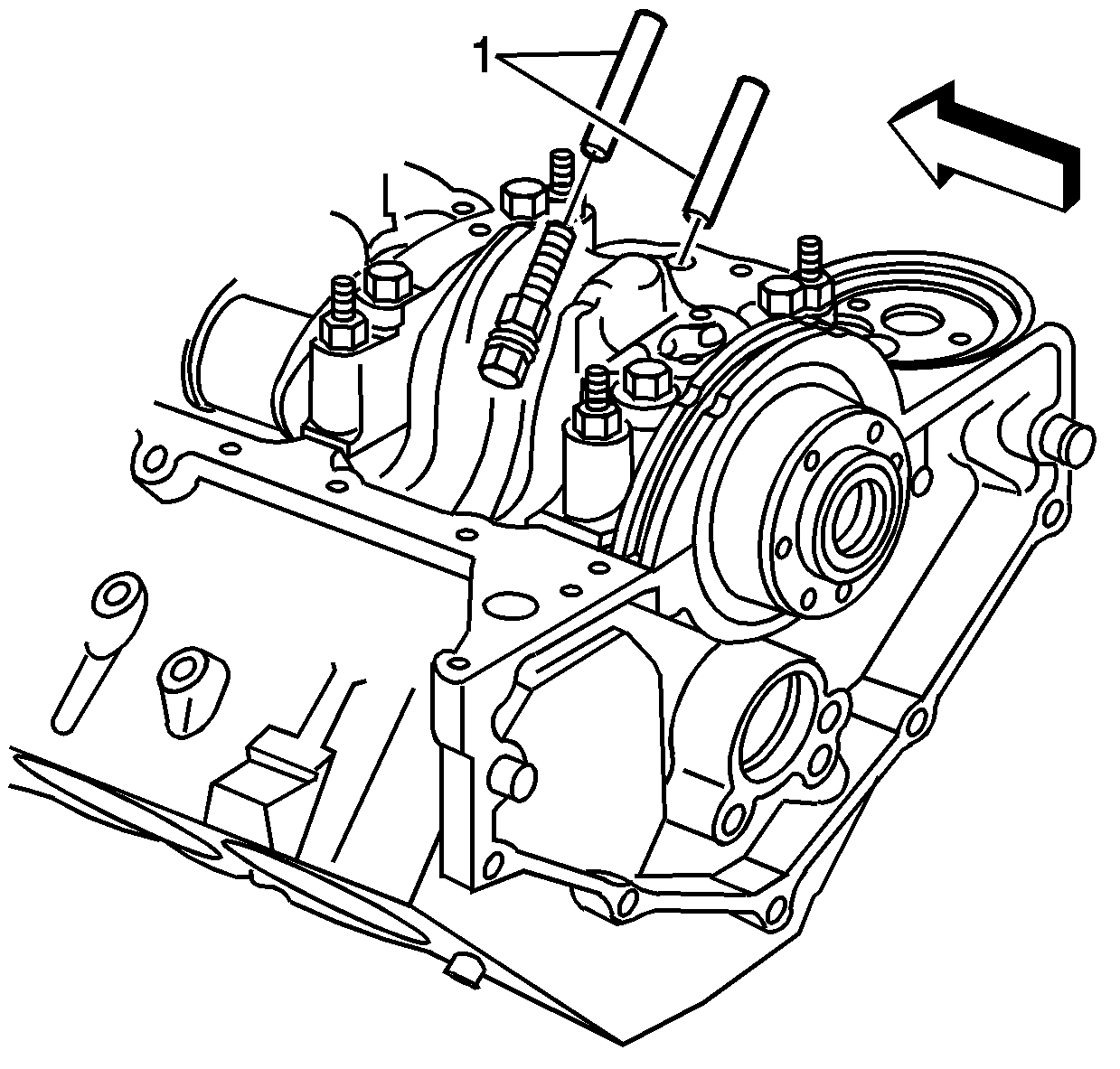
- Use the rubber fuel line
in order to guide the connecting rod onto the crankshaft journal.
- Remove the rubber fuel line.
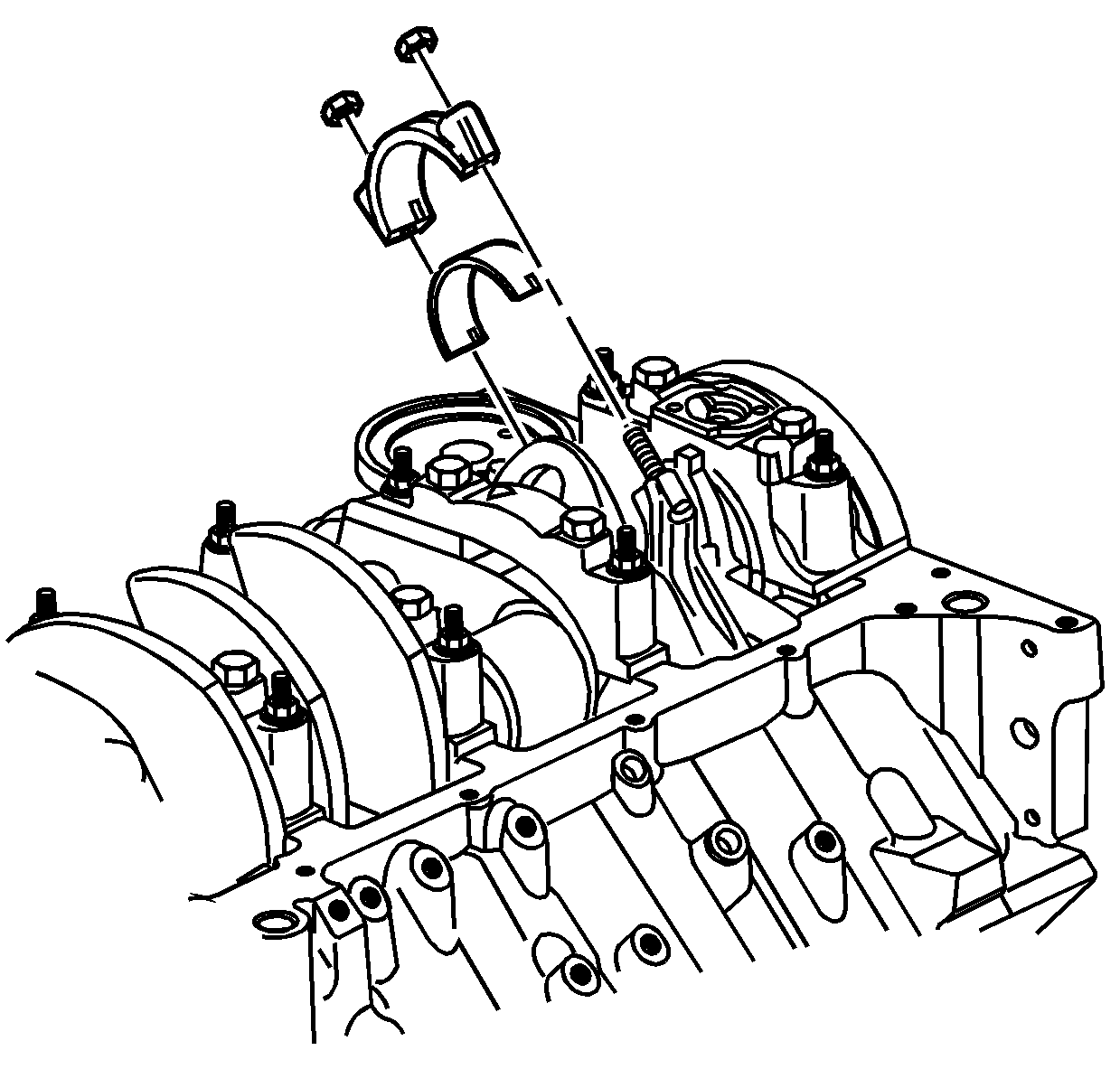
- Install the connecting
rod cap and lower connecting rod bearing.
Notice: Use the correct fastener in the correct location. Replacement fasteners
must be the correct part number for that application. Fasteners requiring
replacement or fasteners requiring the use of thread locking compound or sealant
are identified in the service procedure. Do not use paints, lubricants, or
corrosion inhibitors on fasteners or fastener joint surfaces unless specified.
These coatings affect fastener torque and joint clamping force and may damage
the fastener. Use the correct tightening sequence and specifications when
installing fasteners in order to avoid damage to parts and systems.
Important: When installing the piston/connecting rod assembly, NEW connecting rod
nuts must be installed.
- Install the new connecting rod nuts.
Tighten
Tighten the connecting rod nuts to 30 N·m (22 lb ft)
plus an additional 90 degrees.
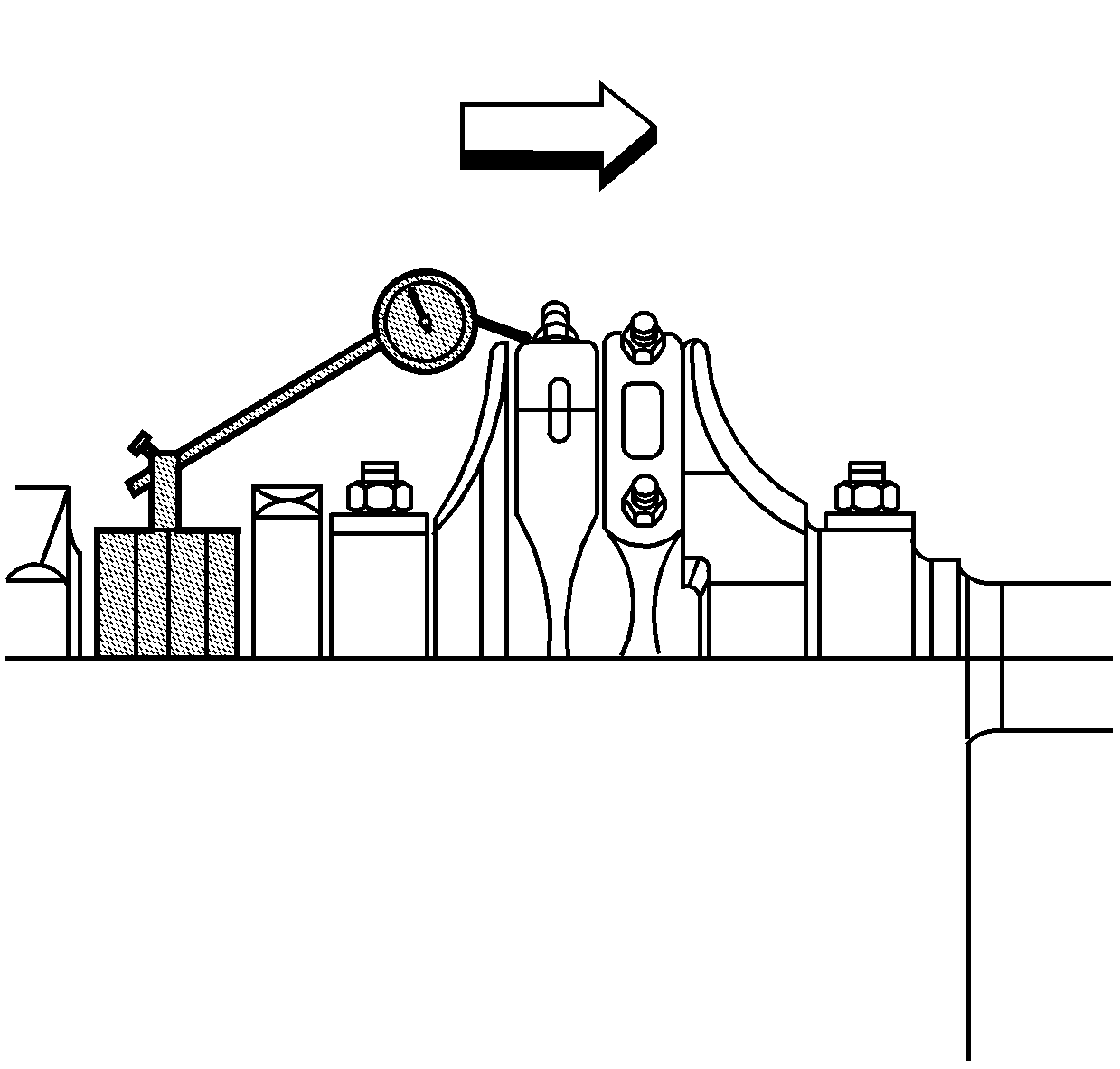
- Once the piston and connecting
rod assemblies have been installed, lightly tap each connecting rod assembly,
parallel to the crankpin, in order to make sure that they have side clearance.
- Use a feeler gage or a dial indicator to measure the side clearance
between the connecting rod caps. The rod side clearance should be 0.384-0.686 mm
(0.0151-0.0270 in).








